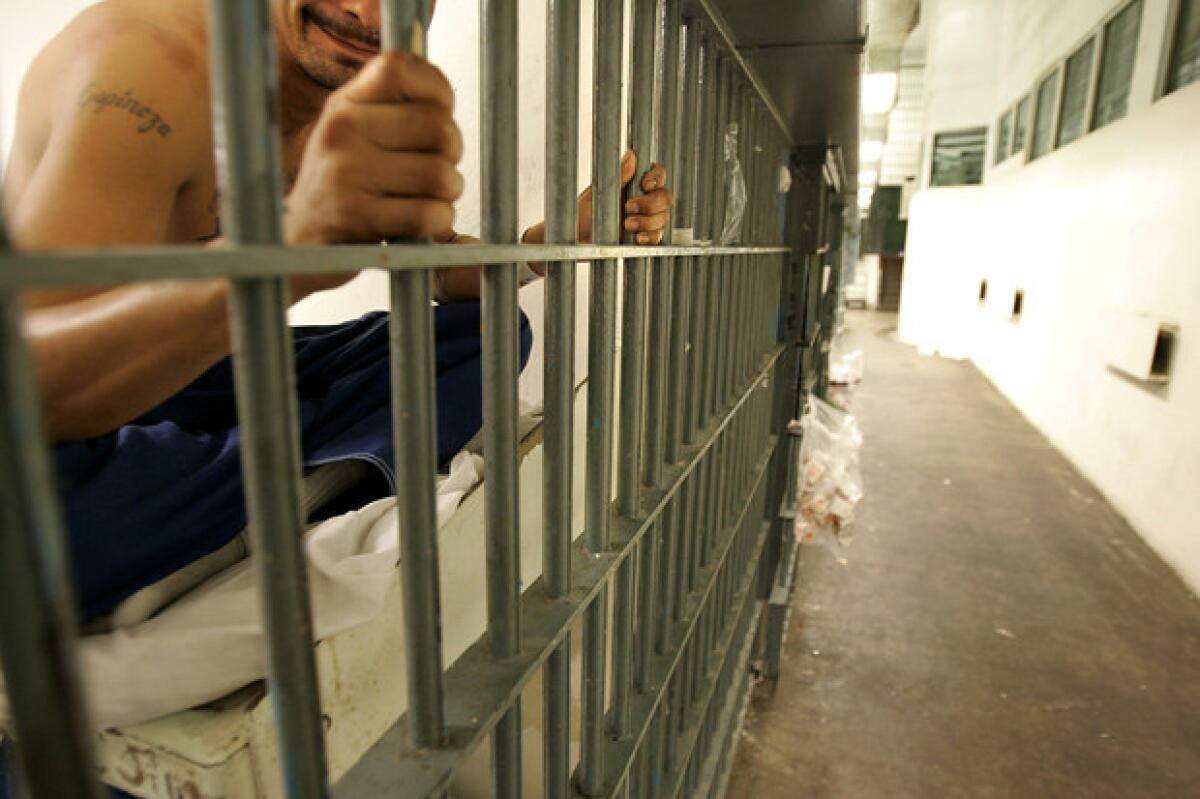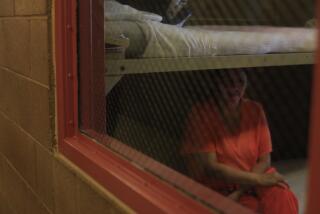Op-Ed: When jails make money off phone calls, society pays

Valentina Sedeno is adamant that it is never a burden to stay in touch with her brother. He has been incarcerated off and on for years in San Francisco and the Bay Area. “It’s a responsibility I’ve taken on for my family,” she said.
But Sedeno’s loyalty has been expensive. She has paid charges that could amount to more than $1,500 over a year, or $300 over an average 70-day jail stay. Until recently, such fees, paid to GTL, the communications company that contracts with many California counties to provide phone services, were required to cover two 15-minute phone calls a day in San Francisco’s jail.
Sometimes, Sedeno has had to choose between paying for groceries and paying her GTL bill. “My mom has at times owed a lot of money to GTL and struggled to pay it,” she said.
And that’s not the whole of what supporting her brother has cost. Sedeno’s family has also put money on the jail books so that her brother could buy basic food and hygiene items from the jail commissary, at prices that would outrage the average consumer.
Charging exorbitant fees for jail phone calls and commissary goods is common across the country. The practice generates funds for essential county jail operations and big profits for the billion-dollar businesses the jails contract with. It’s to be expected that the contractors will make a profit, but counties should get out of this revenue-producing game altogether. Jail operations — such things as inmate education and reentry services — shouldn’t depend on fining the incarcerated above and beyond their sentences, or on gouging their families.
In San Francisco, in large part because of the efforts of Sedeno and other activists, the city and county budget has been altered: The jail will no longer generate revenue for jail operations from phone calls or commissary markups. As of April 1, the prices of commissary items dropped an average of 43%, which was the jail’s previous cut of the profits. This summer, when the county’s contract with GTL is up, all phone calls will officially be free. In the meantime, with visiting hours canceled during the coronavirus crisis, San Francisco is already providing 75 minutes of free phone calls a week for inmates.
It can’t come too soon for the families of the incarcerated, most often their sisters, mothers and grandmothers. According to a report by the Ella Baker Center, 83% of those responsible for paying bail, court fines and fees are women, and mostly low-income women of color. The extra costs of their loved ones’ incarceration average about $13,000 nationwide. Men do the time, but women pay the fine.
How the costs add up vary county to county, but it’s easy to see how they can add up to unaffordable amounts over the course of a jail sentence. A 15-minute call from jail in Lassen County cost $17.80 in 2018, according to the Prison Policy Initiative. When a comparison was done by activists in Santa Clara County, in 2016, Nissin Chili Lime Ramen cost 99 cents in the jail; at Target it was 39 cents. A box of 16 Stay Free Maxi Pads with wings was $9.69 in the jail; at Ralphs, it was $2.99.
Sedeno and other activists from the Young Women’s Freedom Center made the case to San Francisco Mayor London Breed and the county sheriff that the higher the phone charges, the harder it is for incarcerated people to stay in touch with family and friends — the lifelines they’ll need to rely on when they get out. Studies show that inmates who maintain contact with their families are more likely to succeed after they are released and less likely to be reincarcerated. That’s important given that almost half of people who get out of San Francisco jails are rearrested within three years.
San Francisco’s local reforms are gaining momentum. The California Women’s Policy Institute, working with California state Sen. Holly Mitchell (D-Los Angeles), is putting forward SB 555, which would permanently lower jail phone rates and markups in jail commissaries throughout the state. And activists everywhere are calling for jail phone calls to be free during the pandemic.
Jacking up prices for phone calls and jail store items raises revenue, but the practice costs our state in the long run. We need to do everything we can to make it easier — not harder — for incarcerated people to stay in touch with their families.
When we drain the bank accounts of incarcerated people’s families, we’re punishing people who have committed no crime, other than supporting their loved ones. That should be celebrated, not penalized.
Anne Stuhldreher directs the Financial Justice Project in the treasurer’s office of the city and county of San Francisco. She is also a senior fellow with the Aspen Institute’s Financial Security Program.
More to Read
A cure for the common opinion
Get thought-provoking perspectives with our weekly newsletter.
You may occasionally receive promotional content from the Los Angeles Times.










